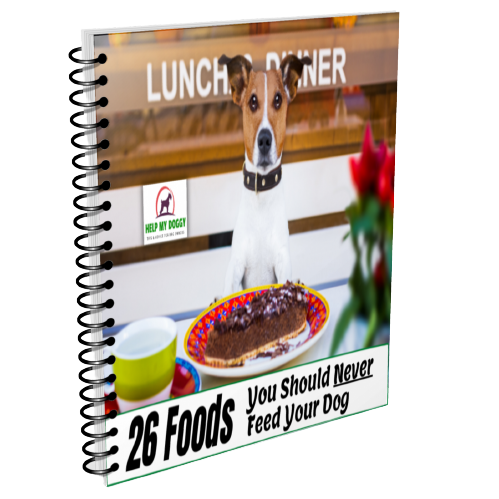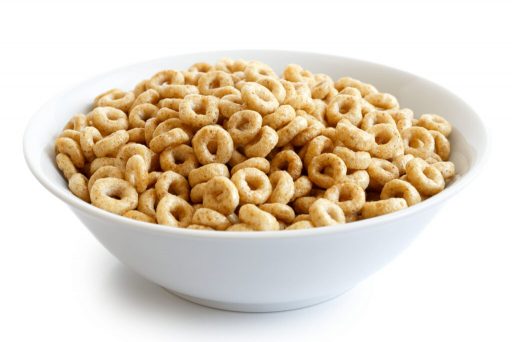You may have heard that cheerios are the new “thing” for your dog to eat because they contain many healthy ingredients that are good for the human body.
However, what is good for the human body is not always good for the canine body. While your pooch may love their cheerios, they are ultimately not a good source of nutrients for their body.
A few cheerios here and there will not harm a dog. However, despite the many heart-healthful ingredients for humans, if integrated regularly into their diet, a dog will be harmed by the grains, sugar, and carbohydrates. As always, it is never recommended to constantly give human food to a dog.
While cheerios in moderation will not harm a dog, there are more things to consider before you start adding them to your dog’s everyday meals.
Snacking on Cheerios
Cheerios are a great snack and meal for humans. For dogs, not so much. The nutrition label professes the health benefits of this breakfast cereal, ensuring vitamins and minerals that are needed for the body can be obtained by eating a bowlful.
However, these same nutrients can be harmful to dogs if eaten in large quantities. Dogs do not need the same types of nutrients in their system as a human does.
Yes, dogs are omnivores like humans, but their body’s makeup needs different things to ensure a healthy lifestyle. They need a different amount of grains and meats in order to have the proper energy to function on a day-to-day basis.
The best snacks for your canine friend need to be safely within your dog’s caloric needs, as well as containing a healthy amount of protein, sodium, and fiber. Adding too many, or not enough, of these healthy nutrients can cause diverse health issues for your pooch.
Dogs also have different caloric needs depending on their activity levels, age, and weight. To fully understand what your dog’s specific nutrition needs to be, here’s some great information you might want to read on the subject.
Training and Cheerios

A common training technique is to give dogs treats when they perform the tricks and objectives correctly. This positive incentive is used not just in training dogs, but in all types of animals.
One of the common treats to give are Cheerios, as they are low impact compared to other dog treats and the dogs love them just as much.
However, making sure to limit the amount of Cheerios given is critical, especially because too many carbohydrates can cause obesity in dogs (as well as humans).
This makes Cheerios a nice every-so-often type of treat and they will work in a pinch. However, it is not a food that should be regularly integrated into their diet.
While using Cheerios as treats is a safe option for your dog to consume, the goal is ultimately to make sure that your dog is getting the right amount of nutrients they need in their bodies.
Is there a Best Flavor?
If you are choosing to give your dog Cheerios as a treat, it is important to give them ones that will avoid any kind of damage to their bodies.
Again, making sure that they are only used in moderation is the key to a healthy lifestyle for your canine partner.
Common Safe Flavors
- Muti-grain Cheerios – These should be given as rarely as possible as dog’s bodies don’t perform well on high-grain diets
- Gluten-Free Cheerios – These contain essentially the same ingredients as regular Cheerios.
- Rice Cheerios- Rice is safe for your dog’s consumption.
Flavors to Avoid
- High Protein – This Cereal contains almonds, which are difficult for dogs to digest. These may cause diarrhea and/or vomiting.
- Frosted Cheerios – Sugary-anything is not good for your dog to consume as high-caloric diets are not healthy for dogs (or humans).
- Honey- These Cheerios are high in calories due to their sugar content.
- Chocolate – Chocolate and caffeine are never safe to give to dogs as they can cause many diverse health issues.
Side Effects
Urinary Tract Infections
One common side effect from eating Cheerios can be a Urinary Tract Infection (UTI). While a few Cheerios will not cause a dog to go into instant pain from a UTI or allergic reaction, the grains, sugars, and carbohydrates are breeding grounds for the formation of UTI-causing bacteria in dogs.
Be cautious when giving your animal Cheerios — as you should with any other food that is not made specifically for canine consumption.
If your dog is suffering from UTIs, look at their diet to ensure that they are consuming the correct amounts of nutrients needed for canine health — you may need to cut out things such as Cheerios or other carb and sugar-heavy foods in order for the UTIs to cease.
Obesity and Diabetes
As with humans, consuming too many carbs or calories can lead to obesity or diabetes.
Cheerios may be a lower-calorie treat, but they contain empty calories, meaning that they don’t have any real nutrients that will benefit your pooch to justify the number of calories they contain.
These empty calories may lead to your dog becoming overweight, which would cause other health issues. Ensuring that your dog is staying in the correct carbohydrate and calorie count diet is key for the healthiest lifestyle possible.
Best Treats for Dogs

As always, the best things for dogs are things that are created specifically for their consumption. Human food is never the best option for your dog’s consumption, no matter how healthy they are for the human body.
While Cheerios are a nice occasional treat, they are not the best treat for your dog.
While looking for the best treats for your pooch, look for those that are low in calories, made with natural and wholesome ingredients, and often have more than just treat-like qualities to them.
If you can use a treat that supplements your dog’s diet in a positive way, even better!
If you are wanting to enhance your dogs diet but you’d like to avoid anything mass-produced, there are many fruits and vegetables such as blueberries, cucumbers, bananas and carrots that are great for your dog.

26 Foods You Should Never Feed Your Dog
There are some foods that a dog should never eat but how do you know which ones they are?
Inside this free book you'll discover...
Elise is the owner of HMD. She has spent her whole life around dogs starting from when she was growing up on her parents farm. She is a prolific writer and blogger who passionately writes about her love for her canine friends.

